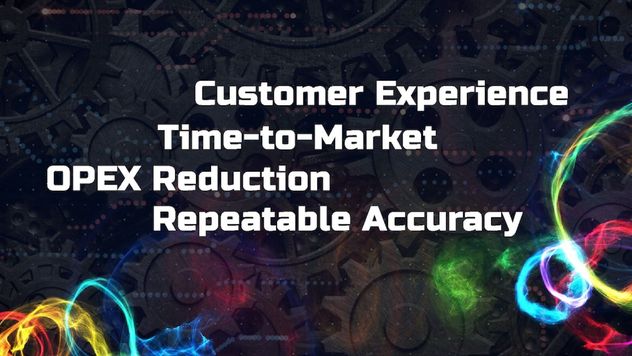
Jump To Section
Navigating complex healthcare systems can often feel like an exercise in frustration, with bureaucratic hurdles obscuring the path to quality patient care.
But imagine a world where accessing medical services is as simple as clicking a button, where personalized care plans are crafted solely with the patient in mind, and digital innovation is harnessed fully to streamline and optimize processes for your well-being.
This transformation is underway, reshaping the traditional healthcare landscape into one that is interconnected, intuitive, and highly responsive to individual needs.
What we’re looking at is a paradigm shift that extends beyond mere patient satisfaction, but a reimagining of how we approach and manage our health. Driven by technology, the future of healthcare promises inclusivity, efficiency, and personalized healthcare solutions.
To dissect the true impact of digital innovation on healthcare, I had the pleasure of interviewing Aaron Cheng, VP of Digital Health at Shoppers Drug Mart, who is a seasoned executive celebrated for spearheading dynamic technical teams and fostering groundbreaking innovation in the digital landscape.
Aaron’s expertise converges on consumer fintech, digital marketplaces, and enterprise digital solutions, and together we explored his profound insights on integrating digital health into traditional pharmacy models, the importance of a patient-focused ecosystem, and his vision for the AI-driven future of healthcare.
The Digital Transformation of Pharmacy Care

The landscape of healthcare is undergoing a monumental shift, thanks to the advent of digital technology. Gone are the days when your only option was a visit to the doctor’s office for any minor ailment.
Today, digital health tools are revolutionizing the way we access pharmacy care, making it more convenient, personalized, and efficient than ever before.
Accessibility of Medical Services
Digital platforms, like health apps, enable you to consult with healthcare professionals without leaving your home. This not only saves time but also makes healthcare accessible to those in remote or underserved locations.
Personalized Care Plans
Imagine having a healthcare plan tailored just for you, considering your medical history, lifestyle, and health goals. Digital health tools analyze your data to provide personalized advice and recommendations, enhancing the quality of care you receive.
Efficiency and Time-Saving
The integration of AI and machine learning in pharmacy care automates routine tasks such as prescription refills and appointment scheduling. This not only reduces wait times but also allows pharmacists to focus more on patient care.
Expanded Scope of Services
Pharmacies are no longer just places to pick up medication; they’re becoming wellness hubs. With the help of digital tools, pharmacists can now offer services like minor ailment treatment, wellness consultations, and chronic disease management.
This digital transformation is not just changing the operational aspects of pharmacies but also redefining the role they play in the healthcare system.
By leveraging technology, pharmacies are expanding their scope and capacity to offer more comprehensive care, directly impacting patient outcomes in a positive way.
The Role of AI in Streamlining Healthcare Delivery
Artificial intelligence is no longer just a buzzword in tech circles; it’s a game-changer in the healthcare industry, poised to revolutionize how we receive and manage our healthcare. Here’s how AI is making strides in streamlining healthcare delivery, ensuring that you get the care you need with efficiency and precision that was previously unimaginable.
Automating Administrative Tasks
One of AI’s most significant impacts is its ability to automate the countless administrative tasks that bog down healthcare professionals. From scheduling appointments to managing patient records, AI can handle these processes quickly and accurately, freeing up healthcare providers to spend more time where it matters most—with their patients.
Enhancing Diagnostic Accuracy
AI algorithms are incredibly adept at analyzing vast amounts of data, including medical images. These algorithms can detect anomalies that the human eye might overlook, leading to earlier and more accurate diagnoses. Early detection is often key to effective treatment, making this application of AI incredibly valuable.
Personalized Treatment Plans
By analyzing data from a variety of sources, including electronic health records and genetic information, AI can help healthcare providers develop more personalized treatment plans. This bespoke approach ensures that treatments are tailored to your unique health profile, potentially increasing their effectiveness.
Predictive Analytics
AI’s ability to predict potential health issues before they become serious problems is perhaps one of its most exciting applications. By analyzing trends in your health data, AI can alert you and your healthcare provider to risks so you can take proactive steps to avoid them.
In essence, AI is transforming healthcare delivery from a one-size-fits-all model to a more personalized, efficient, and predictive approach. This shift not only promises better health outcomes but also a more satisfying healthcare experience for you.
The Challenges of Digital Health Adoption
The road to integrating digital health solutions into our healthcare system is paved with potential but also marked by challenges. Recognizing and overcoming these hurdles is essential to fully realize the benefits of digital health for everyone involved. Here are some key challenges and strategies to address them:
Resistance to Change
One of the most significant barriers is the natural human resistance to change. Both patients and healthcare providers can be wary of new technologies, especially when it involves sensitive health information. Educational campaigns and demonstrations of tangible benefits can help overcome skepticism, showcasing how digital health tools enhance, rather than complicate, the healthcare experience.
Privacy and Security Concerns
With digital health solutions, concerns about data privacy and security are paramount. Patients need assurance that their health information is protected. Implementing robust cybersecurity measures and transparent privacy policies is crucial. Educating users on how their data is used and safeguarded can also build trust.
Interoperability
For digital health to be truly effective, different systems and tools need to be able to communicate with each other seamlessly. This interoperability is often hindered by the diverse range of software platforms in use. Developing and adopting universal standards and protocols can help ensure that digital health tools work together smoothly, providing a cohesive user experience.
Accessibility
Digital health must be accessible to everyone, regardless of age, income, or tech-savviness. Addressing this involves creating user-friendly interfaces that are intuitive for all users, including those who are not digitally literate. Additionally, ensuring affordable access to the necessary technology, such as smartphones or internet service, is crucial for widespread digital health adoption.
Regulatory Hurdles
Navigating the complex regulatory landscape can be a significant challenge for digital health innovators. Regulations are necessary to ensure patient safety and data protection, but they can also slow down the development and adoption of new technologies. A collaborative approach between innovators and regulators can help find a balance, fostering innovation while maintaining high standards of safety and privacy.
By addressing these challenges head-on with strategic solutions and stakeholder collaboration, the path to digital health adoption can be smoothed, paving the way for a healthcare system that is more responsive, efficient, and personalized.
Future Prospects: Integrating Digital Solutions for Enhanced Patient Care
The integration of digital solutions into healthcare is not just an ongoing trend; it’s the future of patient care. As we look ahead, several exciting prospects stand to further enhance the quality, accessibility, and personalization of healthcare services. Here’s a glimpse into what the future might hold:
Seamless Integration Between Digital and Traditional Care
In the near future, we can expect a healthcare ecosystem where digital and traditional care methods are seamlessly integrated. This will allow for a more cohesive healthcare journey, where patients can move effortlessly between online consultations, in-person visits, and digital monitoring, all within a unified framework.
Expansion of Remote Monitoring and Telehealth
The use of wearable devices and home monitoring equipment is set to expand, enabling continuous care and health management from the comfort of one’s home. This not only increases convenience for patients but also allows for real-time data collection that can enhance preventive care and early intervention.
AI-Powered Personal Health Assistants
Imagine having a personal health assistant powered by AI, always on hand to provide health advice, remind you of medication schedules, and even alert you to potential health issues before they become serious. These assistants could become a central part of everyone’s health management, offering tailored advice based on your health data.
Digital Platforms for Holistic Health Management
Future digital health platforms will likely offer holistic health management tools, integrating physical, mental, and emotional health tracking and support. These platforms will provide personalized recommendations for diet, exercise, stress management, and more, all based on your health data and personal preferences.
Enhanced Patient Empowerment and Education
With the advancement of digital health solutions, patients will have greater access to their own health information and a better understanding of their health conditions. This empowerment will enable more informed decision-making and foster a more collaborative patient-provider relationship.
As digital solutions evolve and mature, their potential to transform the healthcare landscape is limitless. Embracing these changes will not only improve outcomes for patients but also enhance the overall healthcare experience for providers and patients alike.
Takeaway
The promise of digital health is not in the technology itself, but in its capacity to empower patients and healthcare providers alike. While the journey toward integrating digital solutions into healthcare is an ongoing process, it is filled with both challenges and opportunities.
By harnessing digital tools and embracing innovation, we can create a healthcare system that fosters wellness, prevention, holistic care, and is truly responsive to the needs of every individual, ensuring better health outcomes for all.
If you found this article helpful and want to gain more insights into the future of healthcare, be sure to tune into the full episode of Behind the Growth for a conversation you do not want to miss!
Find it here:
Bridging Digital Innovation and Pharmacy Care
You can also tune in on your favourite channel:



